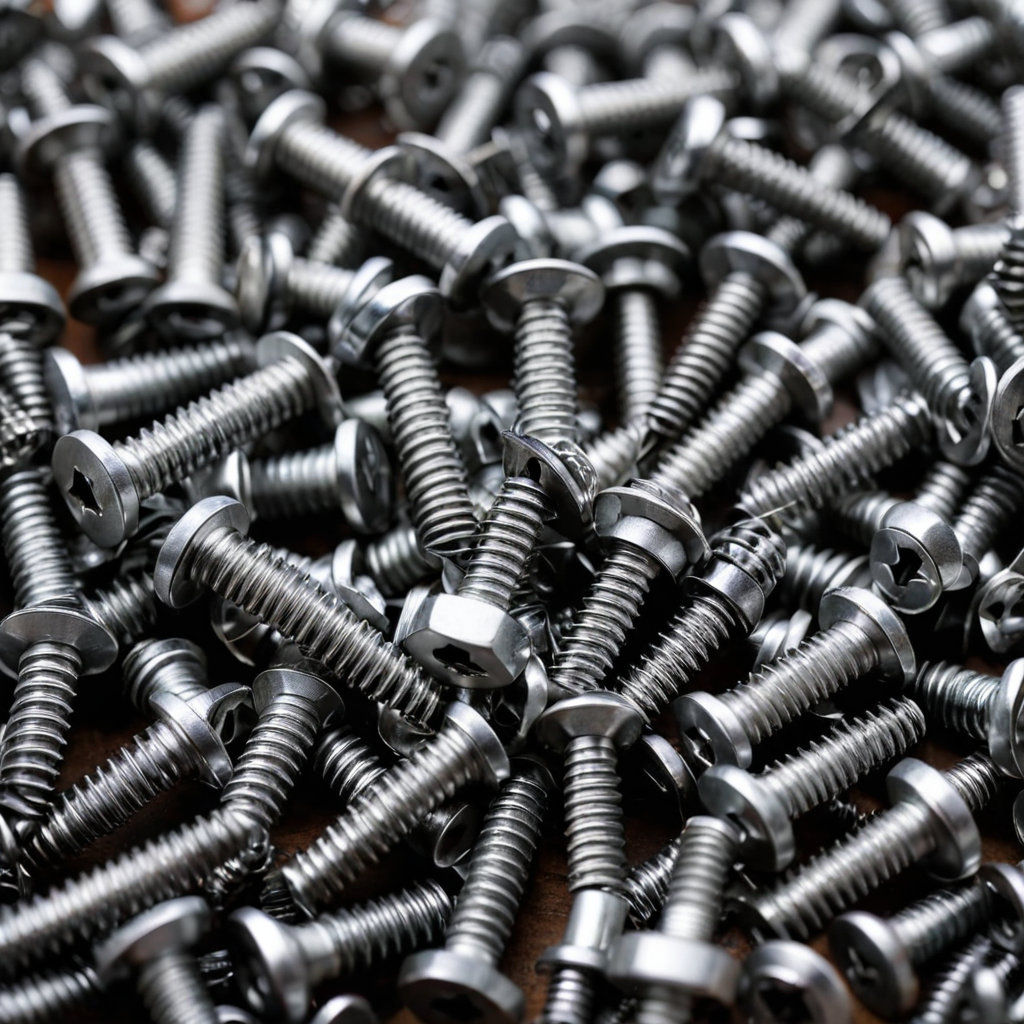
Screws are essential fasteners used in a wide range of construction, woodworking, and DIY projects to join materials securely and efficiently. With various types of screws available on the market, each designed for specific applications and materials, it’s important to understand the characteristics and uses of different screw types to ensure optimal performance and durability in your projects. In this article, we will explore some common types of screws, their features, and the applications they are best suited for.
1. Wood Screws:
– Features: Wood screws have coarse threads and a sharp point, making them ideal for gripping wood fibers and creating strong connections.
– Applications: Wood screws are commonly used in woodworking projects, furniture assembly, cabinetry, and general wood-to-wood applications.
2. Drywall Screws:
– Features: Drywall screws have fine threads and a bugle head designed to secure drywall to studs or framing
– Applications: Drywall screws are specifically used for hanging drywall, gypsum board, and other wallboard materials in interior construction projects.
3. Sheet Metal Screws:
– Features: Sheet metal screws have sharp threads and a flat or pan head, making them suitable for fastening thin metal sheets or materials.
– Applications: Sheet metal screws are commonly used in HVAC installations, metal roofing, automotive repairs, and sheet metal fabrication projects.
4. Machine Screws:
– Features: Machine screws have uniform threads and a flat or round head, designed to be used with nuts or tapped holes in metal or machine applications.
– Applications: Machine screws are used in machinery, appliances, electronics, and other precision equipment where a secure and removable fastening is required.
5. Concrete Screws:
– Features: Concrete screws have a hardened steel construction and a special thread design for anchoring into concrete, brick, or masonry surfaces.
– Applications: Concrete screws are ideal for attaching fixtures, shelves, and other items to concrete walls, floors, or ceilings in construction and renovation projects.
6. Deck Screws:
– Features: Deck screws have corrosion-resistant coatings and a coarse thread for outdoor use in decking, fencing, and other outdoor wood construction projects.
– Applications: Deck screws are specifically designed for securing deck boards, railing systems, and outdoor structures exposed to weather and moisture.
7. Self-Tapping Screws:
– Features: Self-tapping screws have a sharp point and cutting threads that eliminate the need for pre-drilling holes in materials like metal or plastic.
– Applications: Self-tapping screws are commonly used in automotive repairs, metal fabrication, and DIY projects where quick and efficient fastening is required.
By understanding the characteristics and applications of these common types of screws, you can select the right fastener for your specific project needs, materials, and desired outcomes. Whether you are working on woodworking, construction, metalworking, or DIY projects, choosing the appropriate screw type will ensure secure and reliable connections that withstand the test of time.
Cedar Hill St. Louis Jefferson County Olivette Kirkwood Ballwin Arnold Franklin County St Charles County Fenton High Ridge Dittmer Creve Coeur
